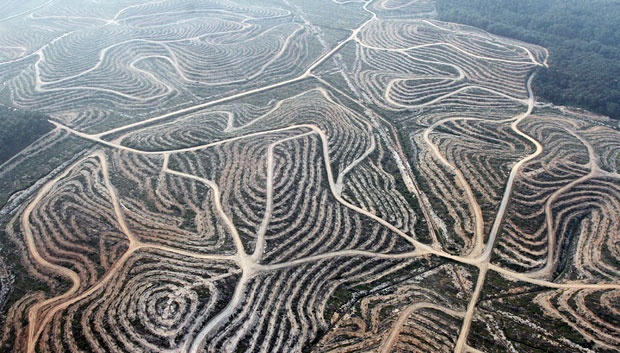Human Rights Abuses in Indonesian Palm Oil Industry
25 July 2013 08:30 WIB

Untold numbers of palm oil workers in Indonesia toil under hazardous, slave-like conditions, a nine-month investigation by Bloomberg Businessweek has found.
The report, which includes interviews with workers at or near 12 plantations in Sumatra and Kalimantan, describes fraud, human trafficking, beatings and other abuse. It was published on Thursday last week.
"Among the estimated 3.7 million workers in the industry are thousands of child laborers and workers who face dangerous and abusive conditions," the article says. "Debt bondage is common, and traffickers who prey on victims face few, if any, sanctions from business or government officials."
Workers were forced into predatory arrangements they did not agree to, denied protective gear for handling dangerous chemicals and beaten for trying to escape.
While the industry has drawn criticism from environmental activists, "The human costs of the palm oil boom...have been largely overlooked," according to the article.
The story related in the article of one palm oil worker, 'Adam', a 19-year-old from North Sumatra who wanted to remain anonymous, "shows the coercion faced by untold numbers of palm oil workers."
Adam was lured to Kalimantan with a promise of $6 a day to drive trucks. When he got there, he was forced to accept different terms. He had to take less money on a salary that would be deferred for two years. In the meantime he was expected to borrow cash from the company and spend it at the company store. He was not allowed to leave the plantation. Instead of driving trucks, he had to toil in the palm groves.
The report focuses on Kuala Lumpur Kepong (KLK), a 107-year-old Malaysian corporation and the world's fifth largest palm oil company. It was KLK that owned PT 198, the plantation where Adam worked. At least 95 workers labored in similar conditions there, the article said.
Cargill, the United States' largest privately held company, is one of the 38 firms that have bought palm oil or palm oil derivatives from KLK since 2009. A Cargill spokeperson told Businessweek in an e-mail that KLK was "not in violation of any labor laws where they operate nor are we aware of any investigation of KLK's labor practices."
The Rainforest Action Network, a US-based environmental group, has started a petition calling on snack companies to cut irresponsible palm oil from their products.
The report comes on the heels of other revelations of labor abuse in Indonesia, such as the Tangerang slave factory outside Jakarta in which 34 workers were kept and made to work against their will. (*)






















